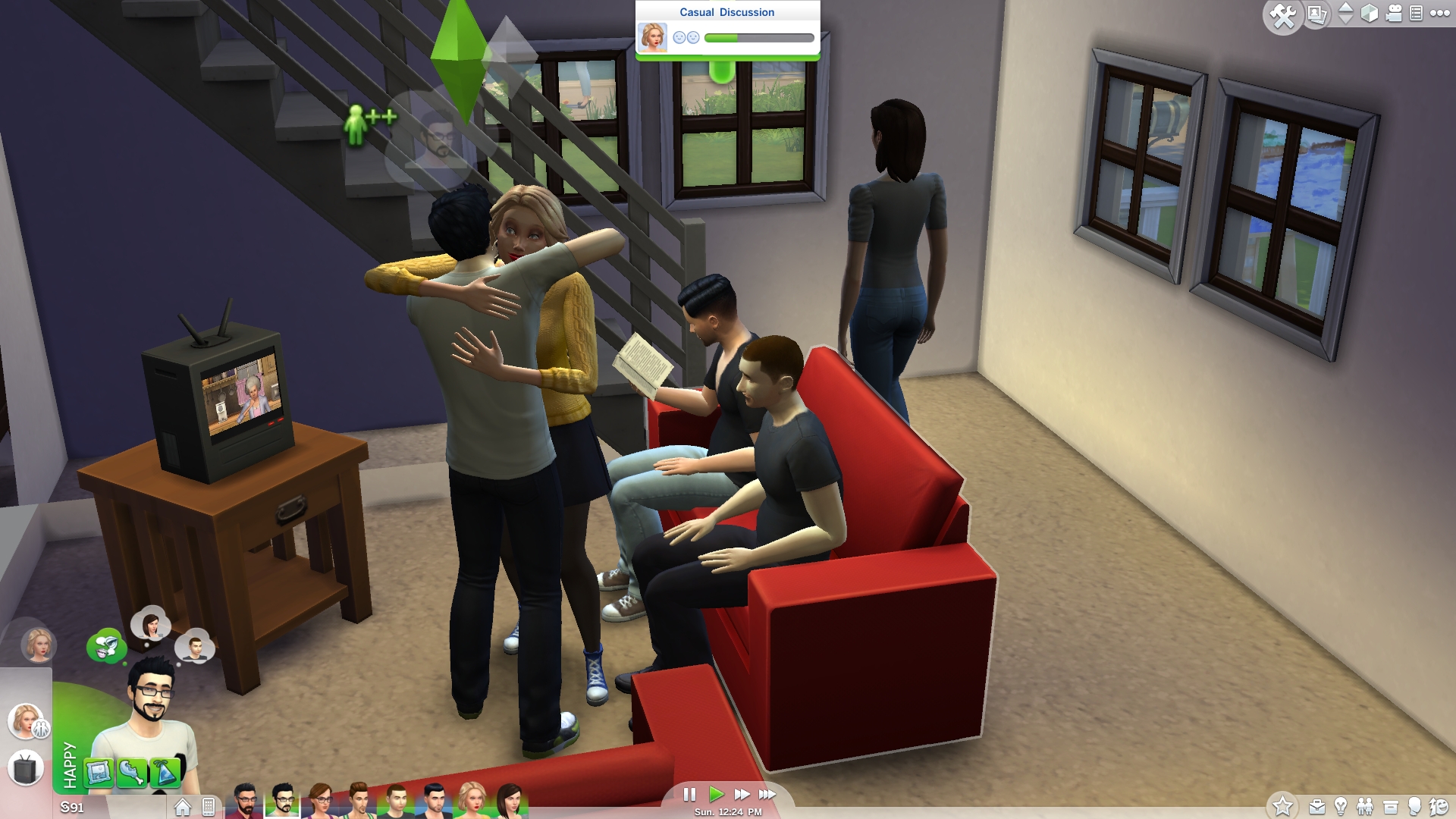Our Verdict
Once more with feeling: this is a fine if familiar base game with great creative tools.
PC Gamer's got your back
Price: £50/$60
Release date: Out now
Publisher: Electronic Arts
Developer: EA Maxis
Multiplayer: Nope
Link: Official Site
There's a blithe naivety to the way that life is presented in The Sims that is either comforting or a little disturbing depending on your mood. The series is softly apolitical in the way that a Barbie house is apolitical, and by that I mean that it isn't apolitical at all . The Sims is loaded with assumptions about the way that people function and about the way that success in life is gauged, but it feels churlish to point them out because it's all just a bit of fun, isn't it. The Sims is set in a world where buying things is always awesome and everybody is twenty-five until they're sixty. Regardless of environmental aesthetic, the series has always been functionally and fundamentally Californian.
Which is fine. Ownership of a beautiful self-built home is a perfectly fine fantasy to construct a game around, and given that the last two games I reviewed were about butchering goblins and disemboweling Nazis I'm not sure I'm in a position to pick too many holes in it. Nonetheless, I came to The Sims 4 with a desire to see the experience that I've enjoyed in the past deepened and complicated by new art and smarter characters. The verdict, on that count, is a partial success. The Sims 4 inherits an enormous number of its predecessor's ideas, goals and structures. It is a sequel in a way that has become peculiar to this series, a fresh start that truncates or removes a huge number of features from The Sims 3 and its expansions in order to begin the cycle all over again. In doing so, Maxis have rebuilt the game to support a new graphical style, better animation, and an emotion system that changes the feel and flow of the game.
Regardless of environmental aesthetic, the series has always been functionally and fundamentally Californian.
After comfortably sinking thirty hours into the game I cannot imagine being without many of these new features. Multi-tasking is one. In prior Sims games, your characters performed the tasks you set for them–or those they assigned themselves, based on need–as part of a queue. Now, that queue can accommodate multiple active tasks at once as long as doing so is physically possible. Listening to music, for example, is something that a Sim can benefit from anywhere in range–because all they need are their ears. A sim that is cooking a meal can talk to their partner while they do it. They can paint and flirt, write a novel and discuss videogames, sit on the toilet and drink coffee. It feels totally natural, and Sims will, if left alone, occupy themselves with multiple tasks at once. The days of steering a Sim from a rigid conversation to watch television in isolation are gone, and good riddance.
This newfound flexibility is matched in a movement and animation system that is–for the most part–much more forgiving than it was in previous games and far less dependent on the games' underlying grid to dictate movement patterns. Awkwardness is still a factor, and this is sometimes exacerbated by the game's willingness to let Sims clip through each other if it resolves a pathing issue faster, but for the most part I experienced far less problems negotiating space in The Sims 4 than I did in The Sims 3. Characters engage and disengage from conversation far more fluidly, too, and can do so from multiple stood and seated character arrangements.
It is not, however, without flaws. Sometimes, Sims will decide that they simply can't go where you want them to go. Sometimes they'll go to the toilet in the park three blocks away because they've decided they can't get to the toilet next door. Sometimes two Sims on a date will sit and opposite ends of a bar and talk to each other across the six people in their way. Some of these oddities are new, and some of them are very, very old; I find it easier to forgive the former than the latter. Where a problem emerges from new technology, it can be filed under away under 'good intentions'. When basic pathing issues are still occurring after fourteen years , it's harder to dismiss.
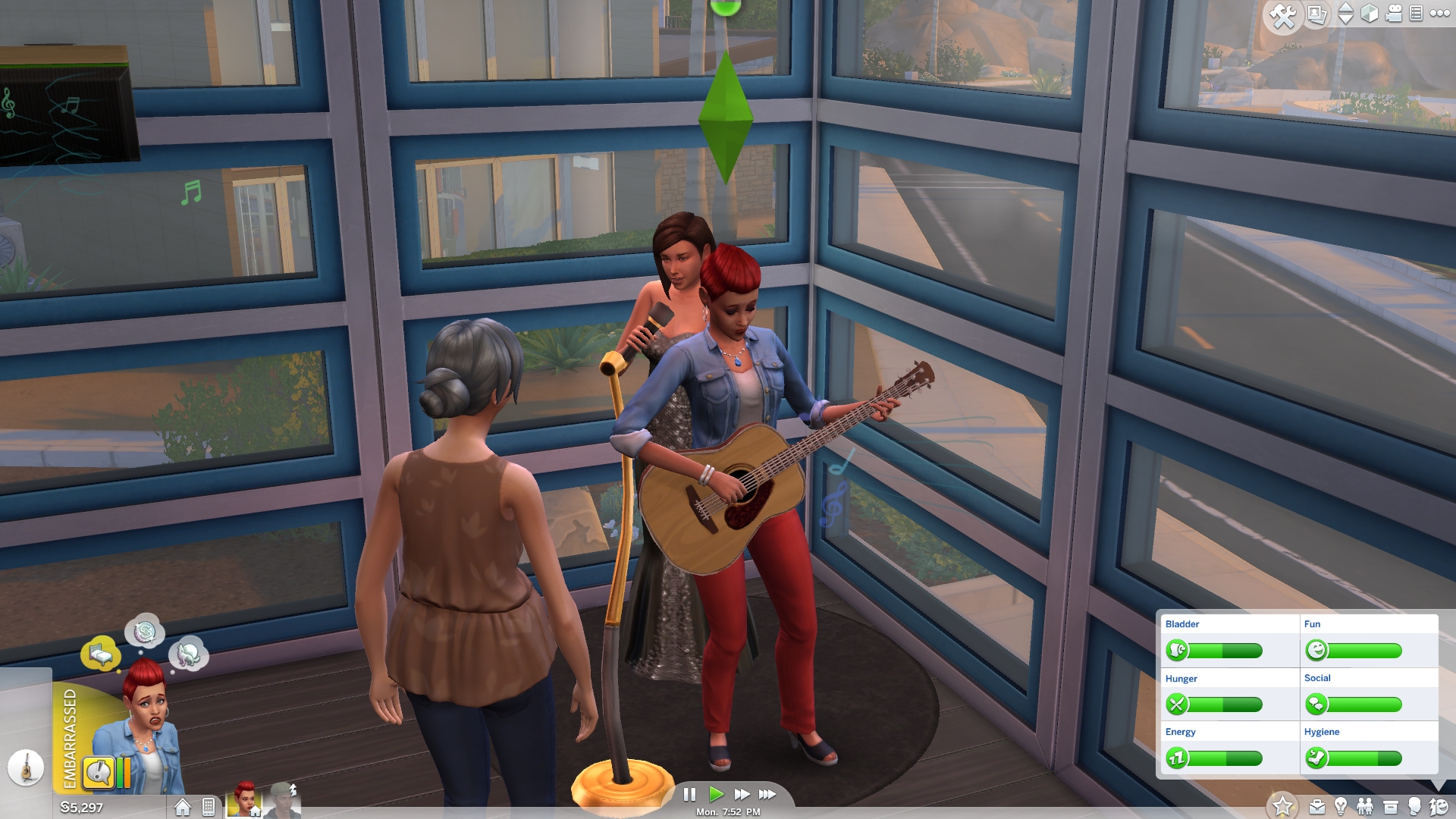
These details–the positive and the negative–are so important because negotiating them is what you spend most of your time doing. As a management game, The Sims 4 is not challenging. It's about wish fulfilment to a substantial degree, and while you'll be asked to earn money and social standing and career success in order to achieve those wishes actually getting there is a matter of time rather than effort. Every Sim has a lifetime ambition, chosen at character creation, that can be swapped out at any time–just like in The Sims 3. The criteria are more complex this time around, but it really just amounts to a longer list of things to do. Tell twenty jokes, write five books, own a voodoo doll, and so on. Finishing an ambition grants various awards and special abilities.
Keep up to date with the most important stories and the best deals, as picked by the PC Gamer team.
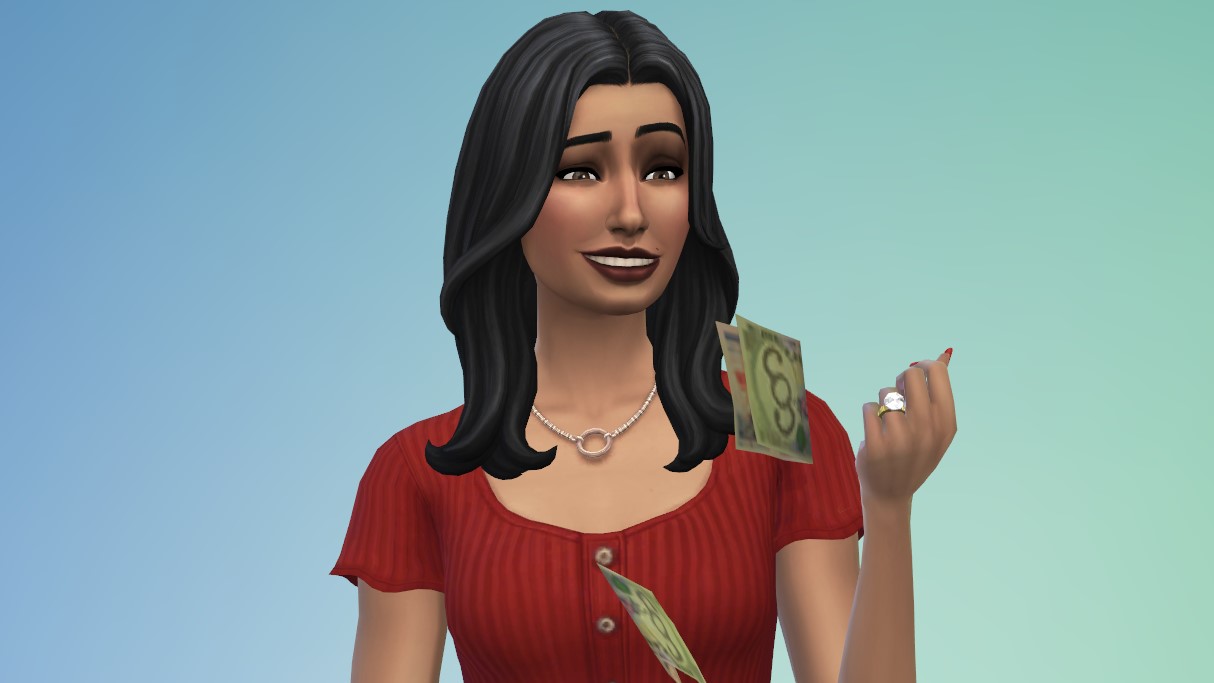
Sims 4 cheats: Life hacks
Sims 4 mods: Play your way
Sims 4 CC: Custom content
Sims 5: What we know
Sims 4 building tips: Renovate
Sims 4 challenges: New rules
Careers are similar, but their promotion paths are longer and, for the most part their rewards come in the form of new items for your home. Beyond a few choose-you-own-adventure style text boxes you have no interaction with what your Sims do during their working day. Instead, as it ever was, you attempt to meet certain criteria in their extracurricular time in the hopes of sending them to work with a good chance of earning a promotion. It's pleasant and absorbing, but also straightforward to the extent that attempting to 'game' the system feels like an act of misinterpretation. Certainly, the series has gotten easier over time.
This is in spite of the added complexity promised by the new emotion system. Rather than simply be governed by their biological needs, Sims now have drives that come from their emotional state, and that, in turn, unlock new actions in the environment. It's a strong addition that adds welcome colour to the game but it's easy enough to incur the ideal emotional state for what you want to achieve that, from a purely mechanical point of view, it may as well be just another criteria to fulfil before packing your Sim off to work. Where emotions more clearly show their promise is in the day-to-day interactions between Sims and in the opportunity they provide the game's designers to express a bit of personality. I wonder, earnestly and fondly, about the nature of the developer who decided that a confident Sim should be able to 'pee like a champion', or that an enraged Sim should unlock the power to 'have an angry poop'. That's just the toilet. There are others.
The emotion system is at its best when you're steering your Sims directly, discovering new interactions through their feelings. It's less successful as part of the game's overall simulation. Without your hand to prompt them into work, love, creativity or crime, unattended Sims will subsist vaguely on orange juice and cereal, watching the TV and browsing the internet until the bills go unpaid, utilities are shut off one by one, and they mooch around alone and unhappy. This has always been true of the series to some extent, but The Sims 4 does so much to deepen its characters' internal lives that it's a shame that there's no option to take the brakes off and simply let the simulation run.
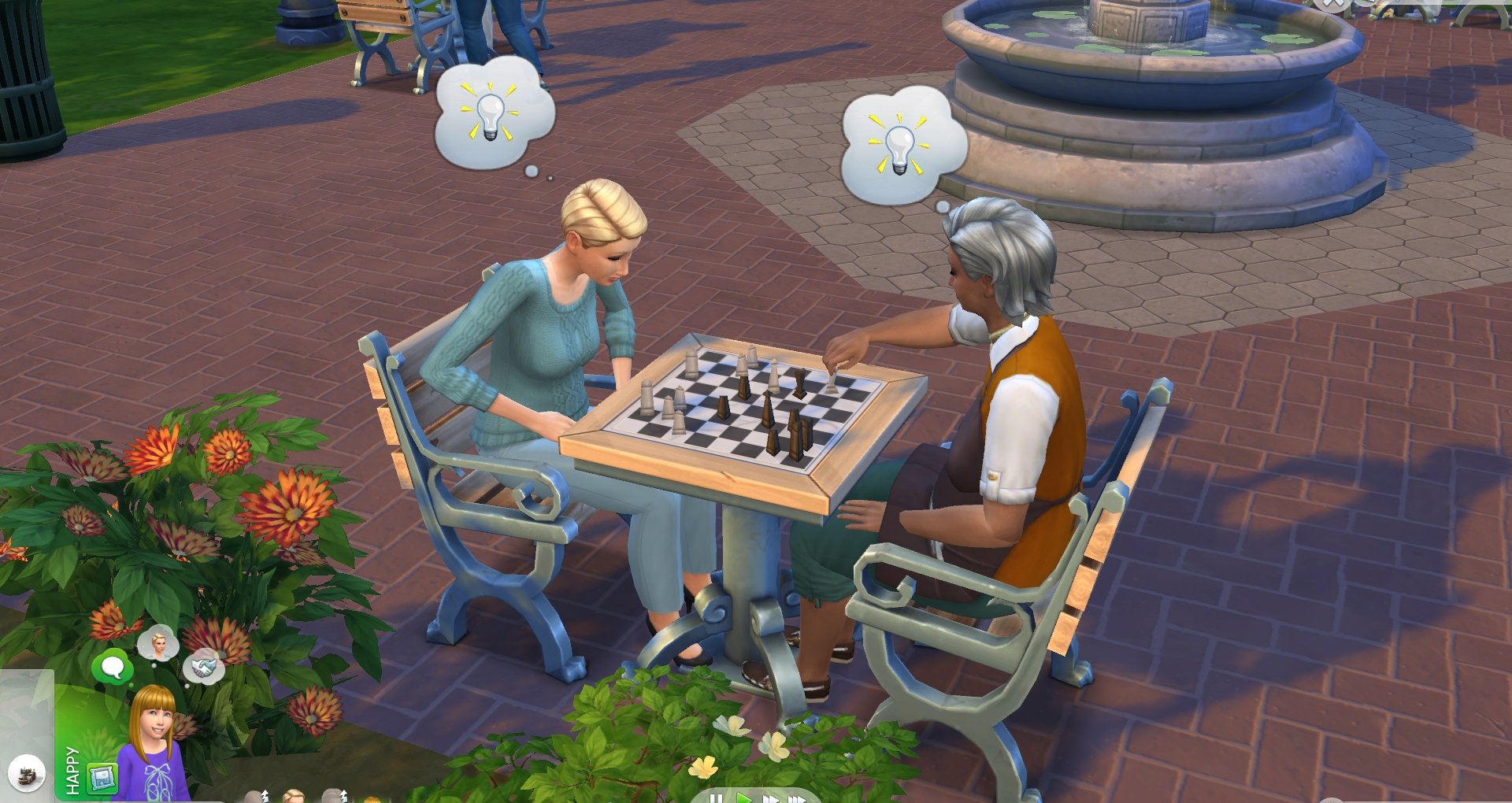
Emotions and traits do occasionally create entertaining situations. I watched a mother explain 'woohoo' to her teenage son only for him to become embarrassed and run off to hide under his duvet covers. In one instance, two Sims that had both missed their birthday parties fled to separate rooms to cry. I saw a tiny Sim version of PC Gamer editor Samuel Roberts excise his anger by yelling at a child in the park. These little moments of character are great, but with prolonged exposure they become background detail rather than a lasting part of your ongoing narrative. In thirty hours I never saw a Sim that I didn't directly control make a bold decision because of their emotions, ambitions or traits. Those choices are left to the player, even when you've opted in for full automation. There's some sense to that, but I'd have loved the option to simply let my Sims out into the world and watch what they did.
If you want your neighbours' lives to change over time, you'll need to micromanage that yourself. They will age as your own Sims do–eerily, at exactly the same time–but otherwise their familial arrangements remain much as you set them. With all this new attention being paid to who your Sims are underneath the surface, it's a missed opportunity. The emotion system adds depth to existing ways to play but does not, ultimately, provide much room for new ones.
note on tone: I've heard a few longtime players express concern about the way that promotional material for The Sims 4 focused on the wackier elements of the gameworld–woohoo in space, man-eating plants, and so on. All of that stuff is present but it's included in the game depending on your choice of ambition, career, and interior design. The grim reaper still shows up when a Sim dies, and from birth to death their lives are touched by silliness, but generally speaking you're free to establish the tone you want for your particular story.
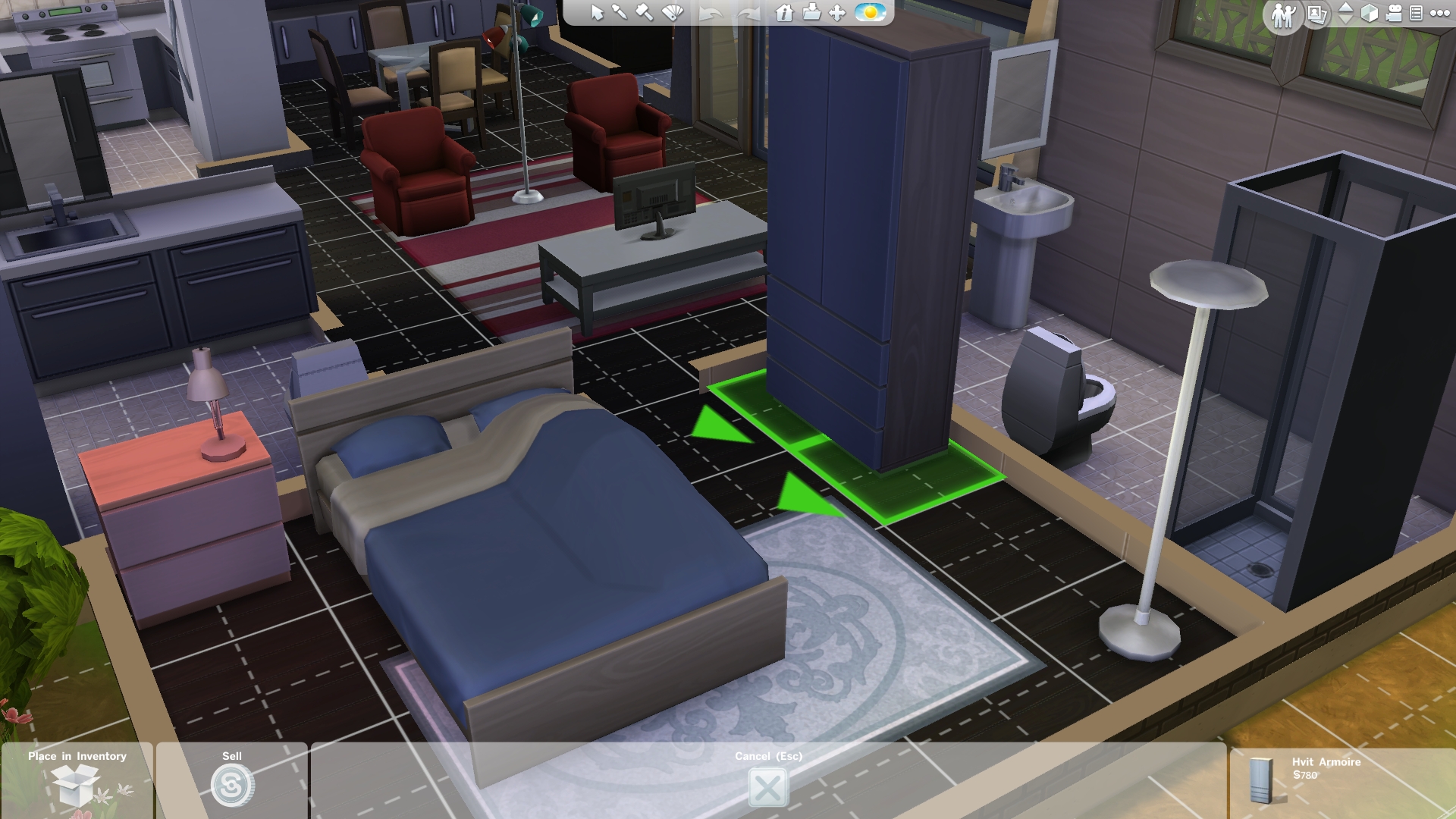
Neighbourhoods have been restructured in a way that will be controversial with fans of The Sims 3 and anybody who has feared that the series would suffer the same disastrous downscaling that afflicted its cousin, SimCity. There are two 'worlds' to inhabit, Willow Creek and Oasis Springs, and they each comprise a handful of small areas with four or five building plots on each. You can only load into a single interior at a time, and traveling between locations invlves a (blessedly short) loading screen. The Sims 3's cars and bikes are gone. Initially, this creates the sense that the game is actually an isolated collection of vignettes–the poor neighbourhood, the rich neighbourhood, the commercial district, the park.
After more time with the game, it's clear that this isn't quite fair. AI-controlled Sims populate each area in substantial numbers, and even though the abstract map screen doesn't quite have the same sense of life as The Sims 3's open world, individual areas feel more active than they did before. With a bit of tinkering, it's also possible to customise these small words by changing plots to support different types of buildings. You can build your own cafes and museums as well as homes, and that encourages the degree of obsessive personal attachment that many fans will be looking for. It also seems like it'd be easier to expand upon in future.
Character creation qualifies as a game in its own right, if the number of faces being shared online is anything to go by.
If there's a downside to these new places it is that they are not, in and of themselves, particularly interesting. During the game's development, a single piece of concept art was shown off–a strip of moonlit bars and houses along a stretch of river in the bayou, Louisiana by way of Paris. It was an exciting image because it was very much unlike what The Sims had been before; it suggested an intimacy and depth of detail that, sadly, this game doesn't quite match. That strip of buildings is actually in the final game–if you spin the camera around in a particular plot in Willow Creek you can see it, across the river. But it's just a static mesh in the distance, a gesture at what might have been.
Of course, that's before players themselves make it so. The Sims 4's build tools are the best in the series. Rescaling rooms is far easier than it was before, you can adjust wall height, and the improvements to pathing make unorthodox arrangements more viable. I spent an hour building a modernist home based on images I'd collected from the internet and the experience was far more gratifying–and the final result far closer to what I'd envisaged–than I've managed to do in The Sims 3. I expect to be amazed by what people with actual talent can do.
The same is true for character creation. You tweak a characters' features and body type by tugging at them with your mouse pointer, and there are a wide variety of clothing options and styles. It's possible to create computer simulacra of yourself, friends and celebrities to an uncanny degree of accuracy, with the main weakness being that everybody is the same height. Character creation qualifies as a game in its own right, if the number of famous faces being shared online is anything to go by.
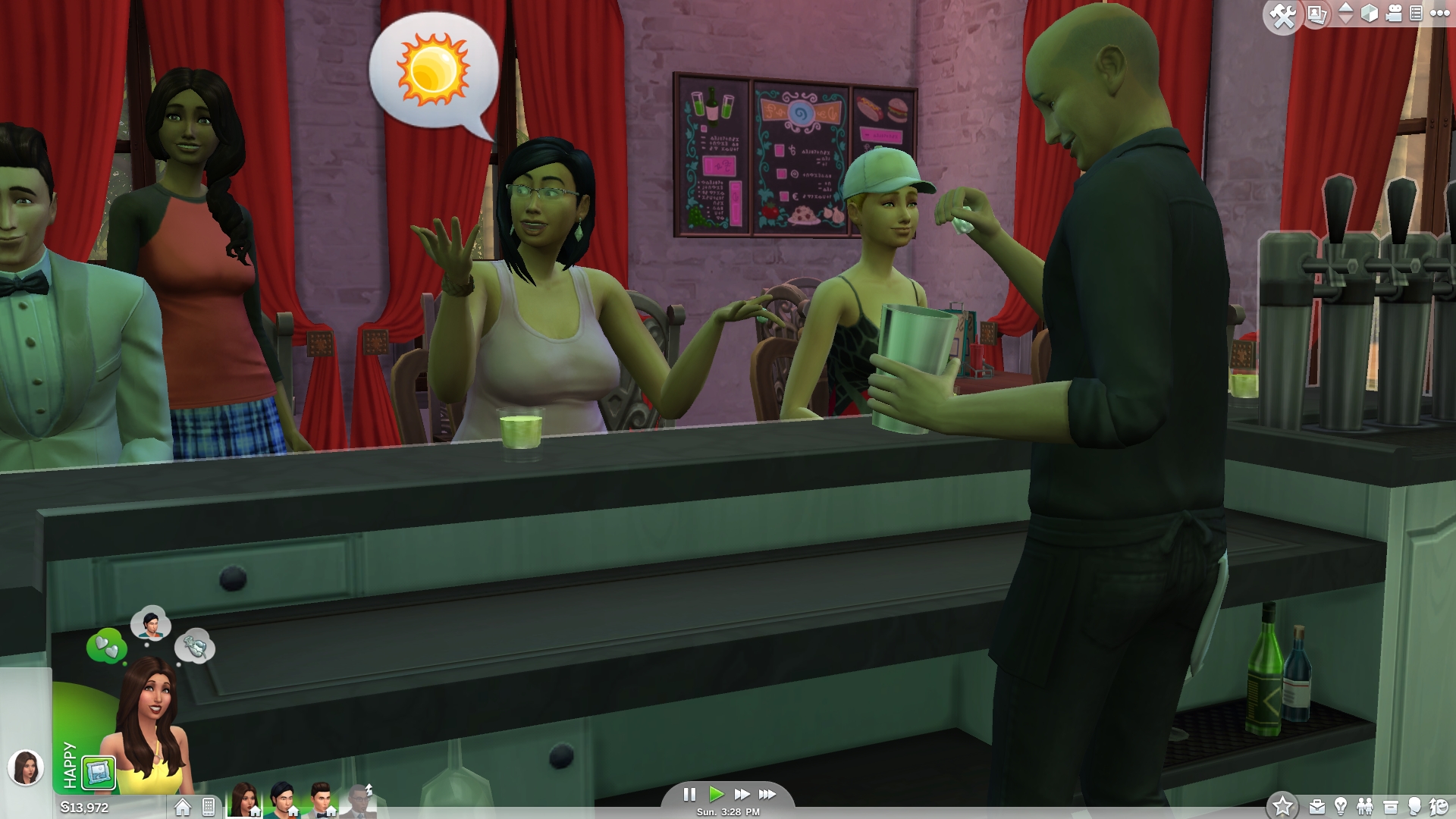
Initially I was a little skeptical about the role of cloud sharing in The Sims due to lingering cynicism about EA's 'everything belongs online' policy. In this case, it works brilliantly. The Gallery is a central repository for your own designs for Sims, rooms and buildings that connects to a network for uploading your creations and downloading them from other people. If you want to airdrop Barack Obama into your neighbourhood, searching for his name in the Gallery will find you something you can use in seconds. Players are already sharing imaginative homes, and I suspect that it is possible to fill every building in the game with a different player's interpretation of what Taylor Swift looks like.
Cynicism is sadly warranted by the asking price, however: the game is a staggering £50/$60 on Origin. EA know that they don't need to follow the trend of PC games getting cheaper and cheaper because The Sims will always sell, but that doesn't feel like an excuse. The absence of a microtransaction store makes the asking price feel less like a mugging, but EA still seem to be incapable of selling their products in a way that doesn't make you feel slightly exploited. If you're interested in the game you've got to weigh up that price against the fact that this is a retread of an established experience–and that you'll probably end up paying for expansions in the future.
After a week of play, however, I feel confident in calling this the best Sims base game to date. It benefits from everything that Maxis have learned since making The Sims 3, and it provides a firm platform on which to build the series' future. It's the game you know, but slightly better. No other game offers what it does. There is comfort in that familiar feeling.
Thanks to The Sims subreddit for offering their perspectives in the run-up to writing this review. Your input was very helpful.
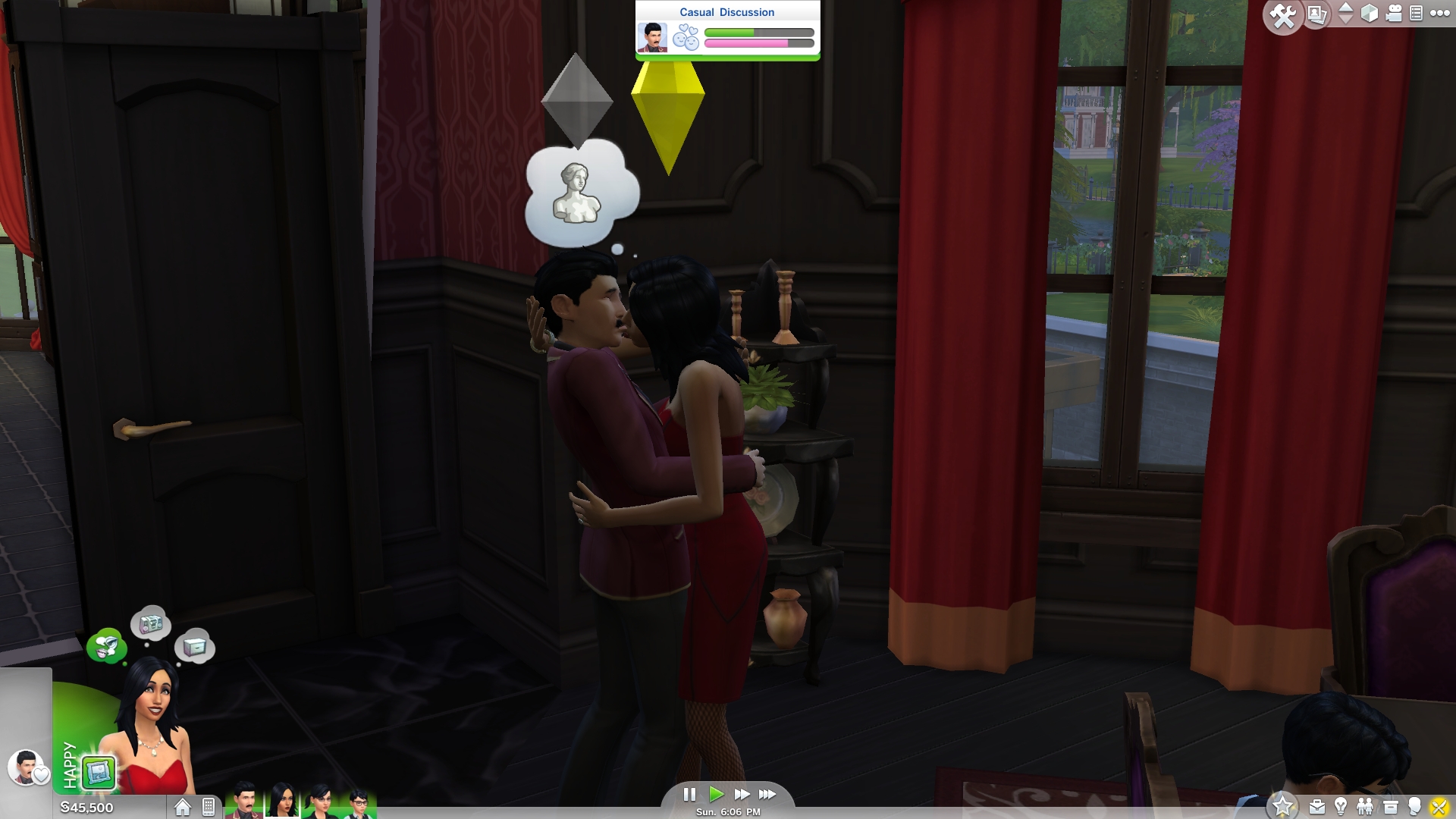

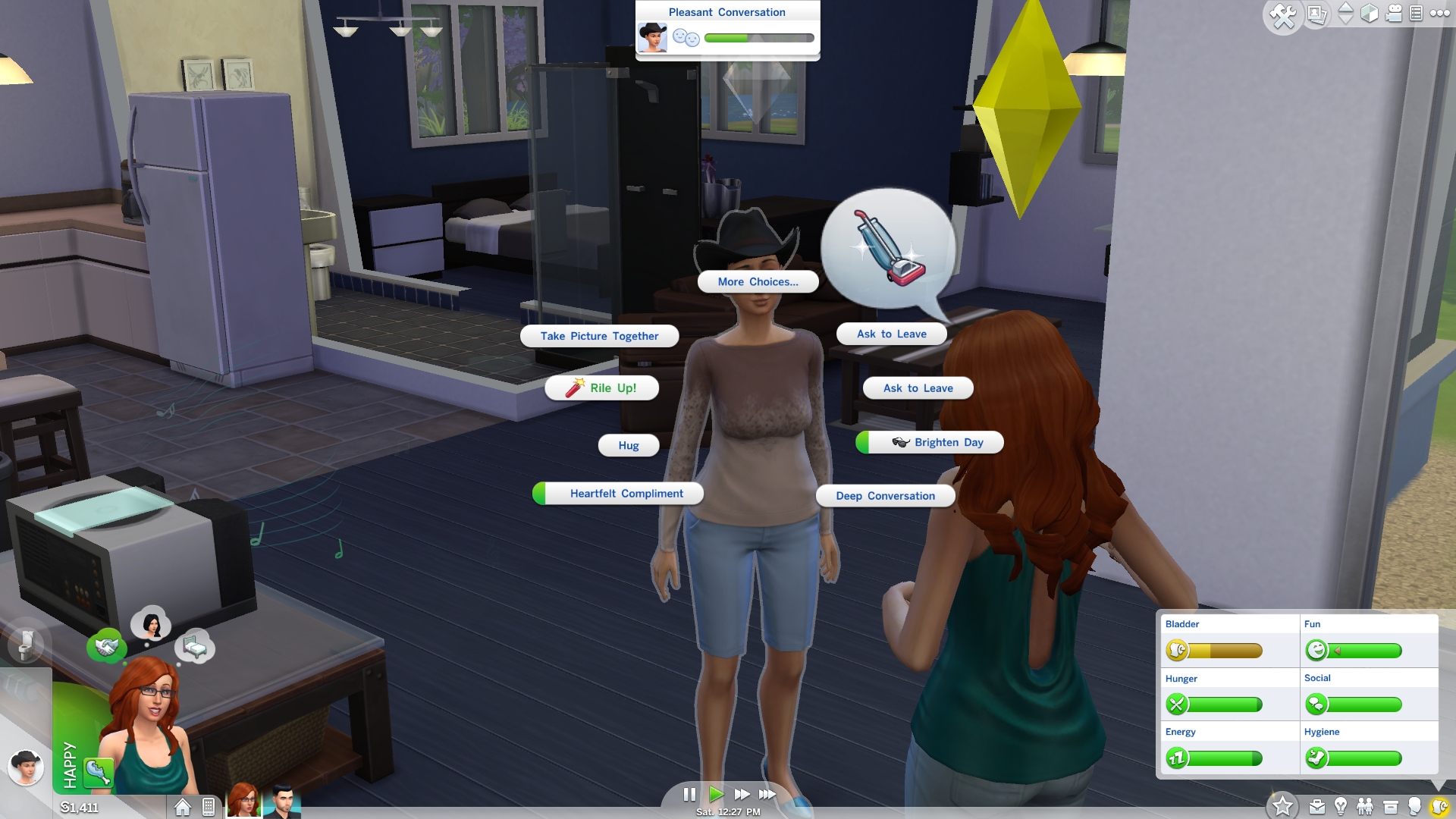
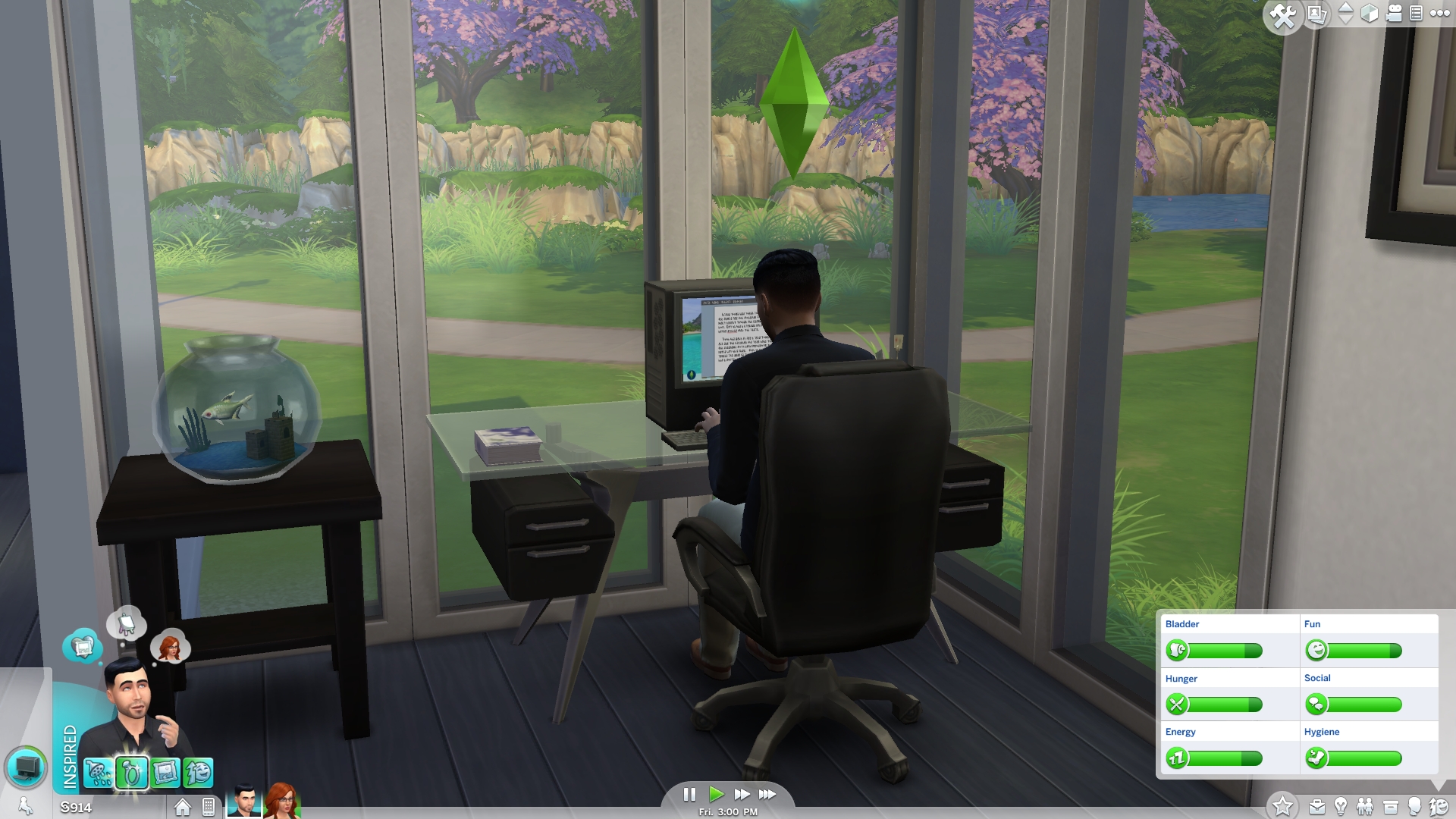
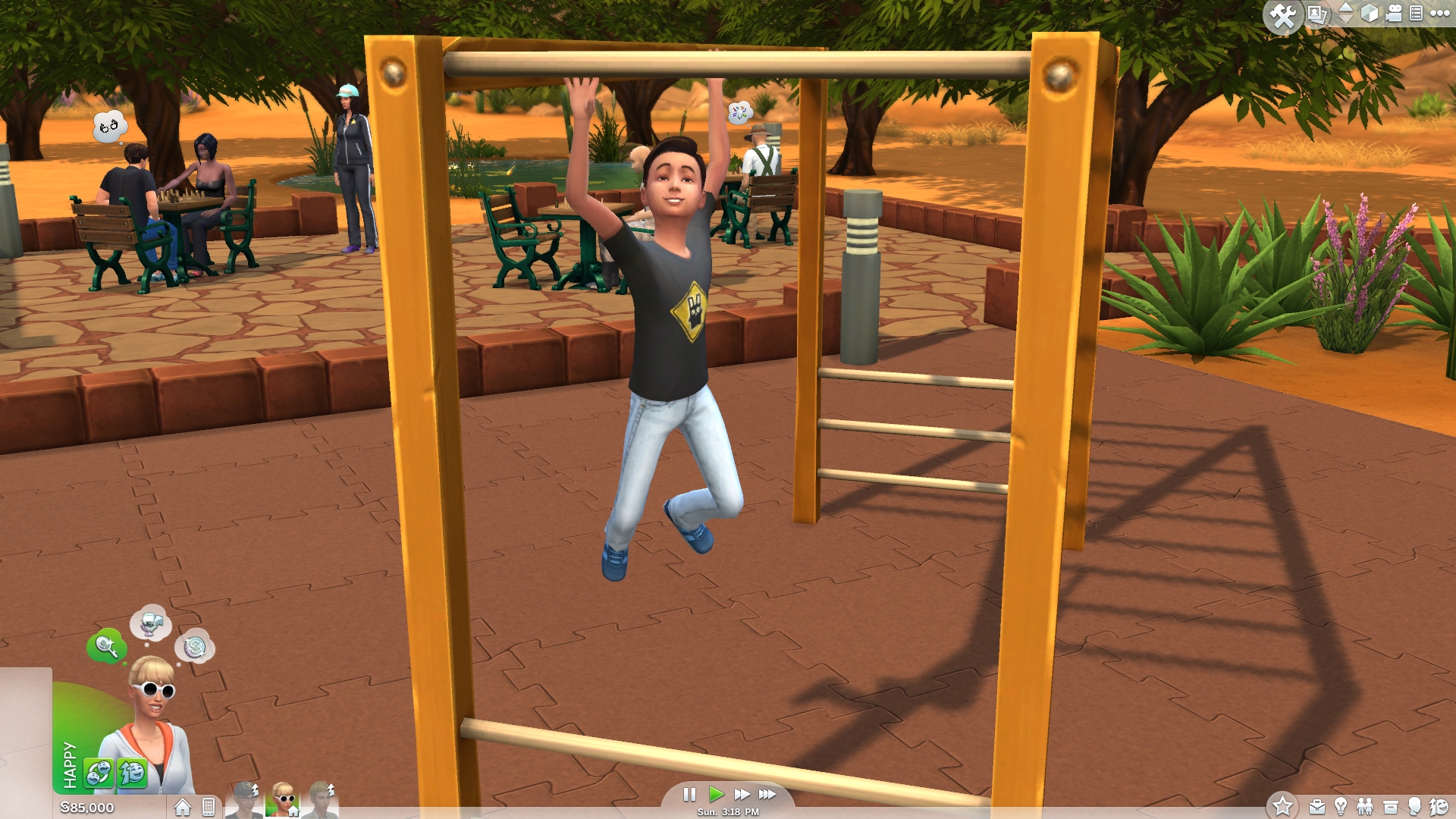
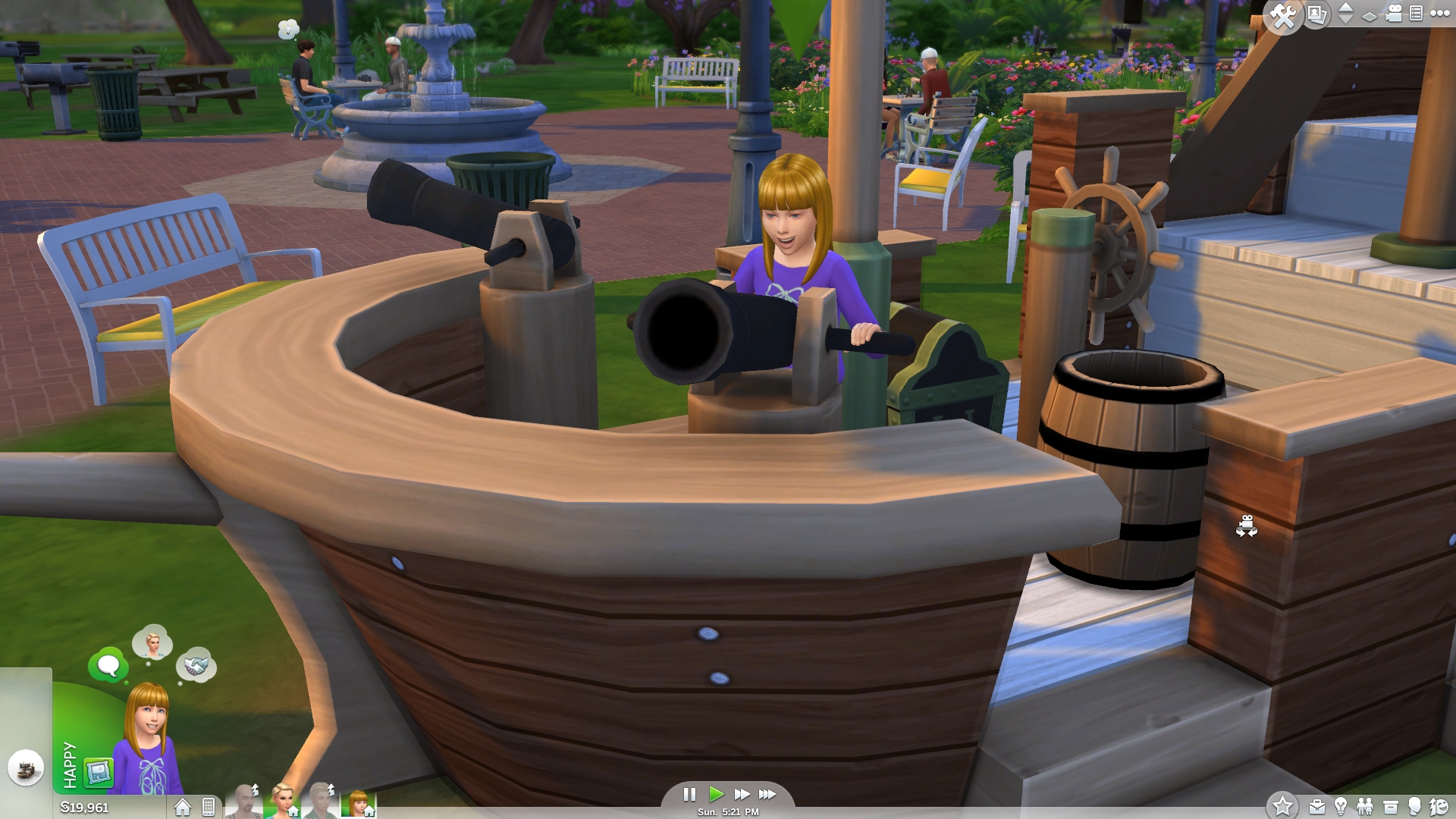
Once more with feeling: this is a fine if familiar base game with great creative tools.
Joining in 2011, Chris made his start with PC Gamer turning beautiful trees into magazines, first as a writer and later as deputy editor. Once PCG's reluctant MMO champion , his discovery of Dota 2 in 2012 led him to much darker, stranger places. In 2015, Chris became the editor of PC Gamer Pro, overseeing our online coverage of competitive gaming and esports. He left in 2017, and can be now found making games and recording the Crate & Crowbar podcast.
